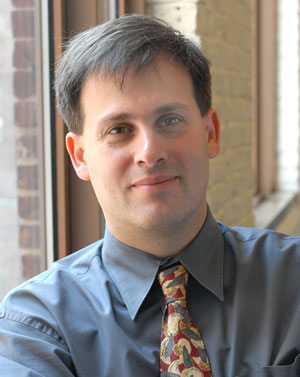
 I've known Michael Chernew for more than 16 years now. For seven of those years, we would take a morning soda break, and discuss the great issues of the day in the student lounge at the University of Michigan School of Public Health where we both worked. I learned a heck of a lot about health economics and other matters in these conversations. Life moved on, and so did we.
I've known Michael Chernew for more than 16 years now. For seven of those years, we would take a morning soda break, and discuss the great issues of the day in the student lounge at the University of Michigan School of Public Health where we both worked. I learned a heck of a lot about health economics and other matters in these conversations. Life moved on, and so did we.
Michael is now Professor of Health Care Policy in the Department of Health Care Policy at Harvard Medical School. His research examines several areas related to controlling health care spending growth while improving quality. He has worked with large employers on Value Based Insurance Design (VBID), an approach to designing copayments and deductibles to promote health and cost-effectiveness. His work on payment reform involves evaluation of bundled payment initiatives, including global payment models and pay-for-performance. He has also done important research concerning the likely impact of changes to Medicare Advantage payment rates.
He is now Vice Chair of the Medicare Payment Advisory Commission (MedPAC), which is an independent agency established to advise the U.S. Congress on issues affecting the Medicare program. He is also a member of the Congressional Budget Office’s Panel of Health Advisors and The Commonwealth Foundation’s Commission on a High Performance Health Care System. In 2000, 2004 and 2010, he served on technical advisory panels for the Center for Medicare and Medicaid Services (CMS) that reviewed the assumptions used by the Medicare actuaries to assess the financial status of the Medicare trust funds. In 2011, he served on the Institute of Medicine’s Committee on Determination of Essential Health Benefits.
I was delighted to have a chance to chat with Michael on healthinsurance.org. Of course, his comments expressed here are personal opinions and do not represent the views of MEDPAC, CMS, or any other organization with which he has worked.
Discussing 'the essentials' and beyond
In Part One of our Curbside Consult interview, Michael explains the Affordable Care Act's essential benefits ... what should and shouldn't be covered and the difficulty in determining what's "essential."
In Part Two of the interview, we continue our discussion of how the essential benefits package was defined. Michael also talks about whether young people will feel "sticker shock" due to more expansive coverage under health reform and whether Americans should be scared about a long-term increase in costs for Medicare, Medicaid and other health insurance.
In Part Three, we talk about how health care providers are trying to become more efficient, and whether Medicare should change the way providers are paid to facilitate that move toward efficiency. We also look at a recent Time magazine article about the high price of medical care and use it as a springboard to a discussion of strategies for controlling costs in the system.
In Part Four of the interview, we spend a few minutes talking about medical cost effectiveness, touch on Medicare costs and Boomers' retirement, and I ask whether financing Medicare means we just need to bite the bullet and raise significantly more tax revenue.
I hope you enjoy our conversation.
Harold Pollack is Helen Ross Professor of Social Service Administration at the University of Chicago. He has written about health policy for the Washington Post, New York Times, New Republic, The Huffington Post and many other publications. His essay, “Lessons from an Emergency Room Nightmare,” was selected for The Best American Medical Writing, 2009.


